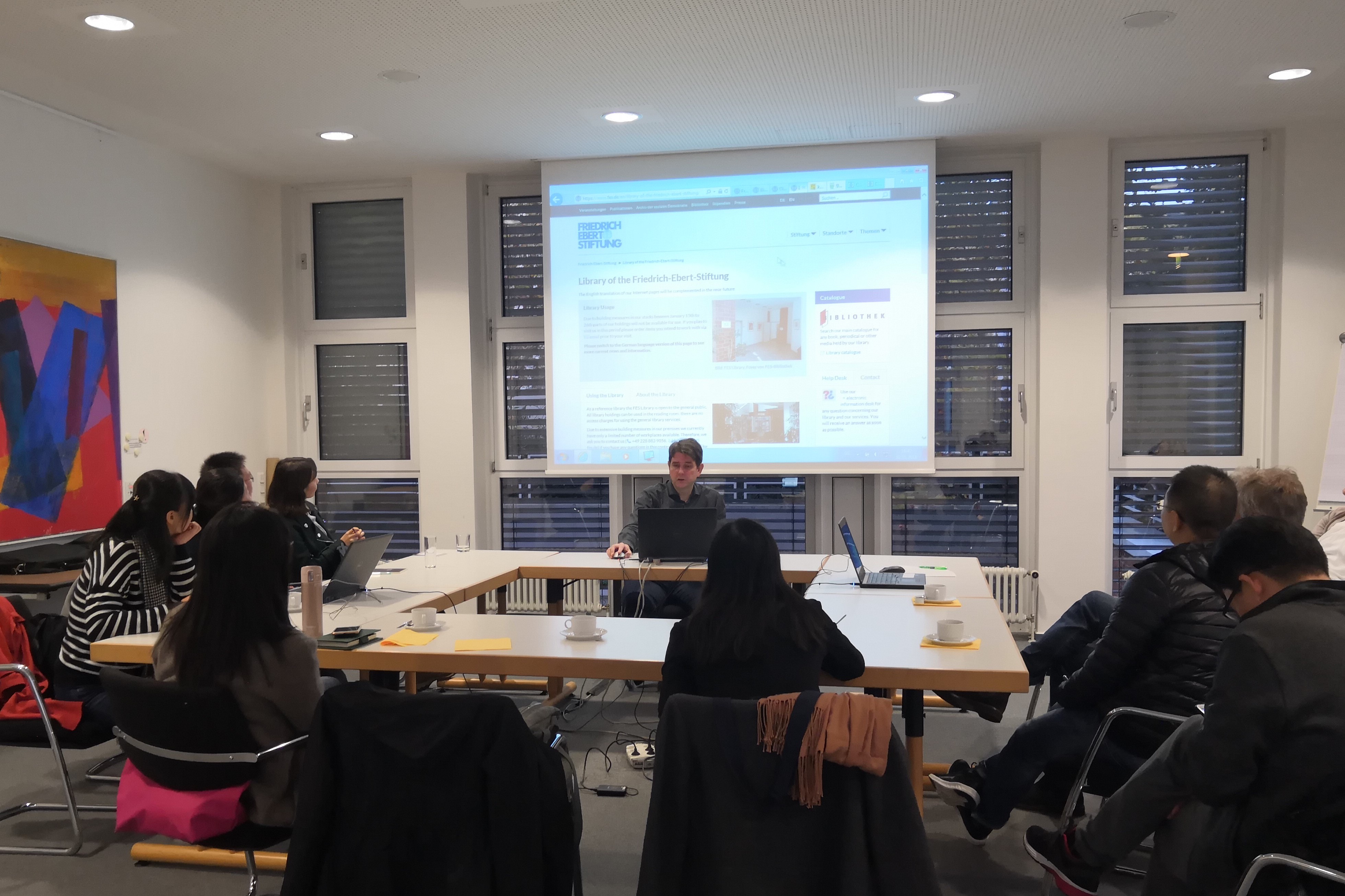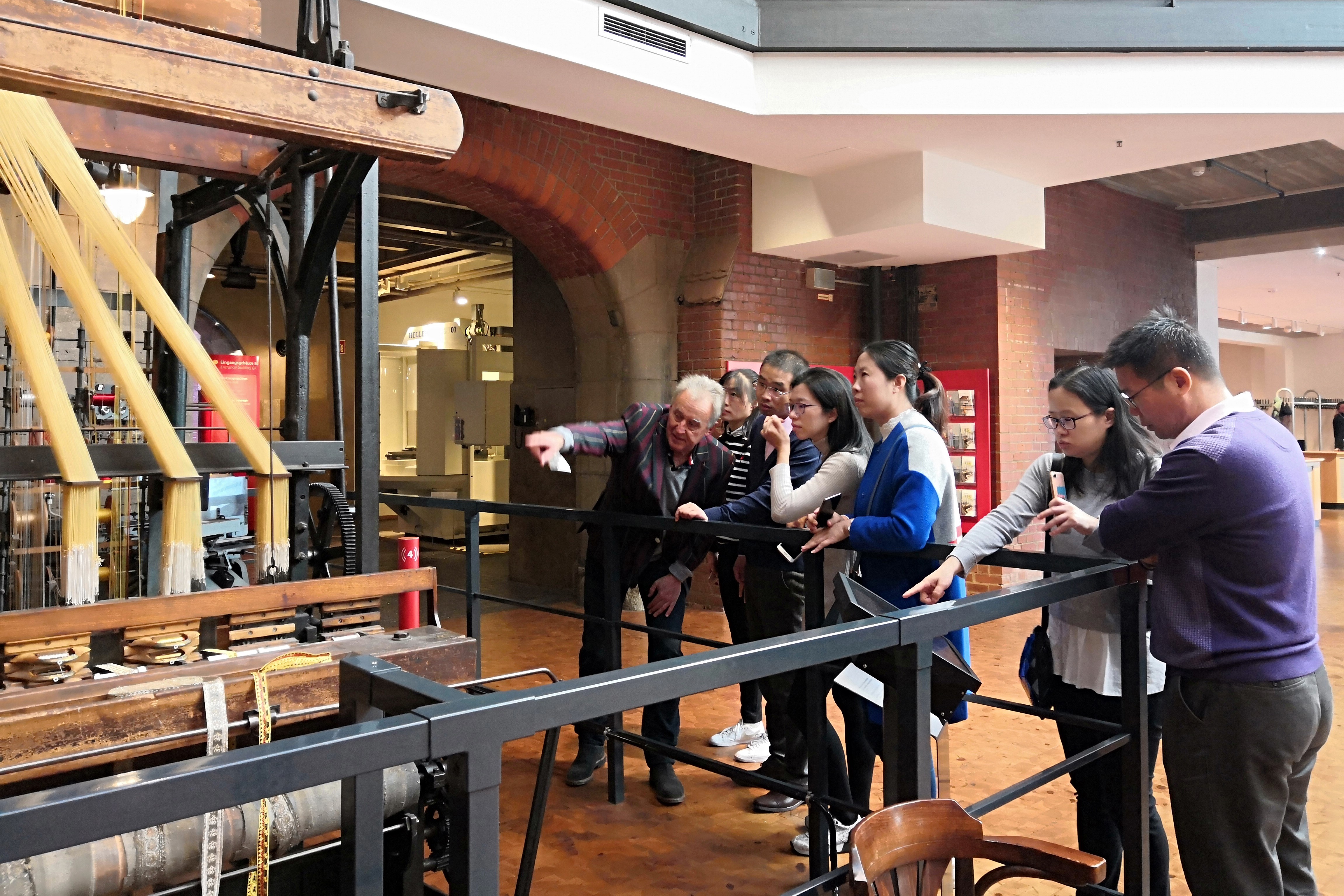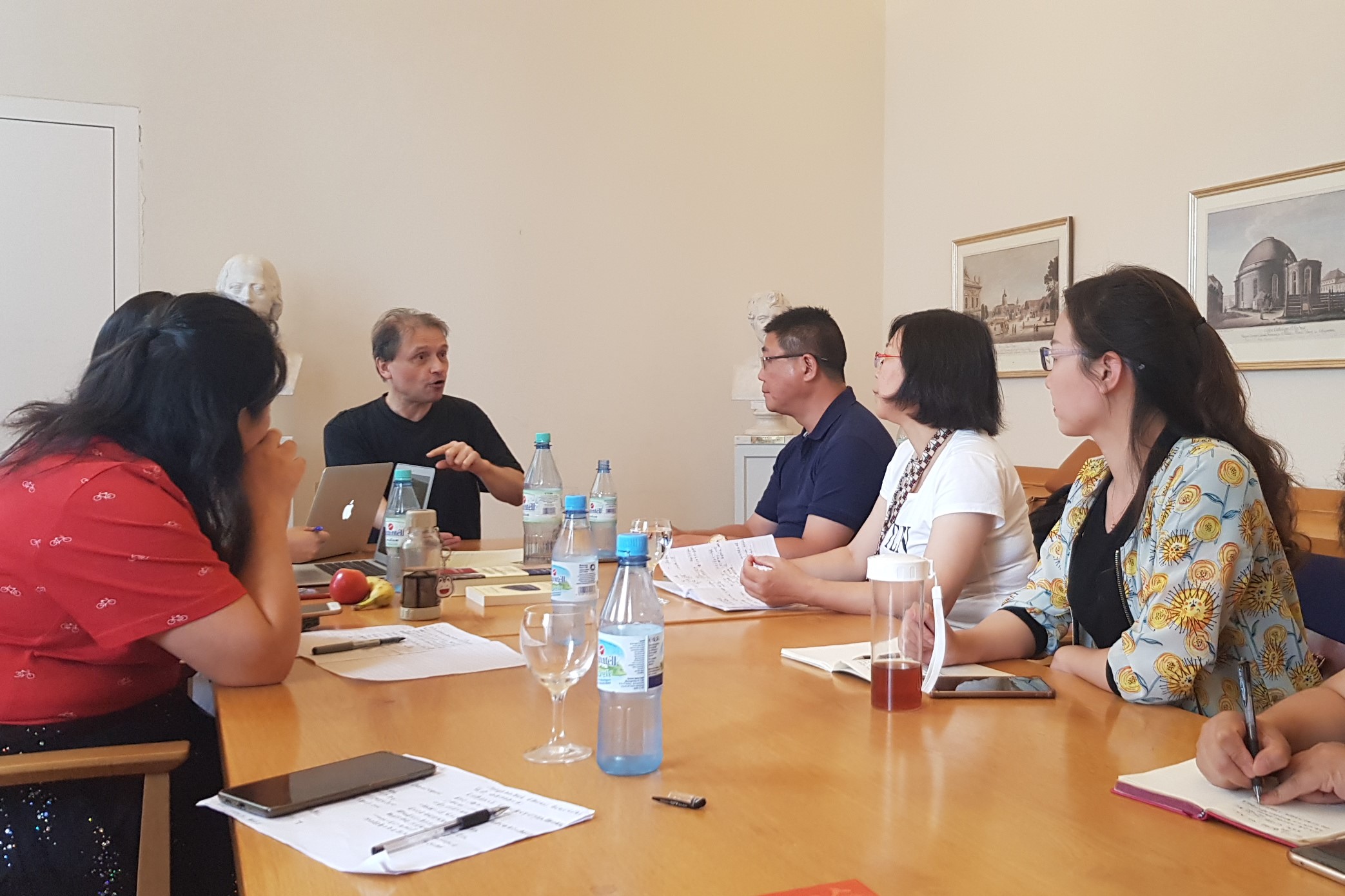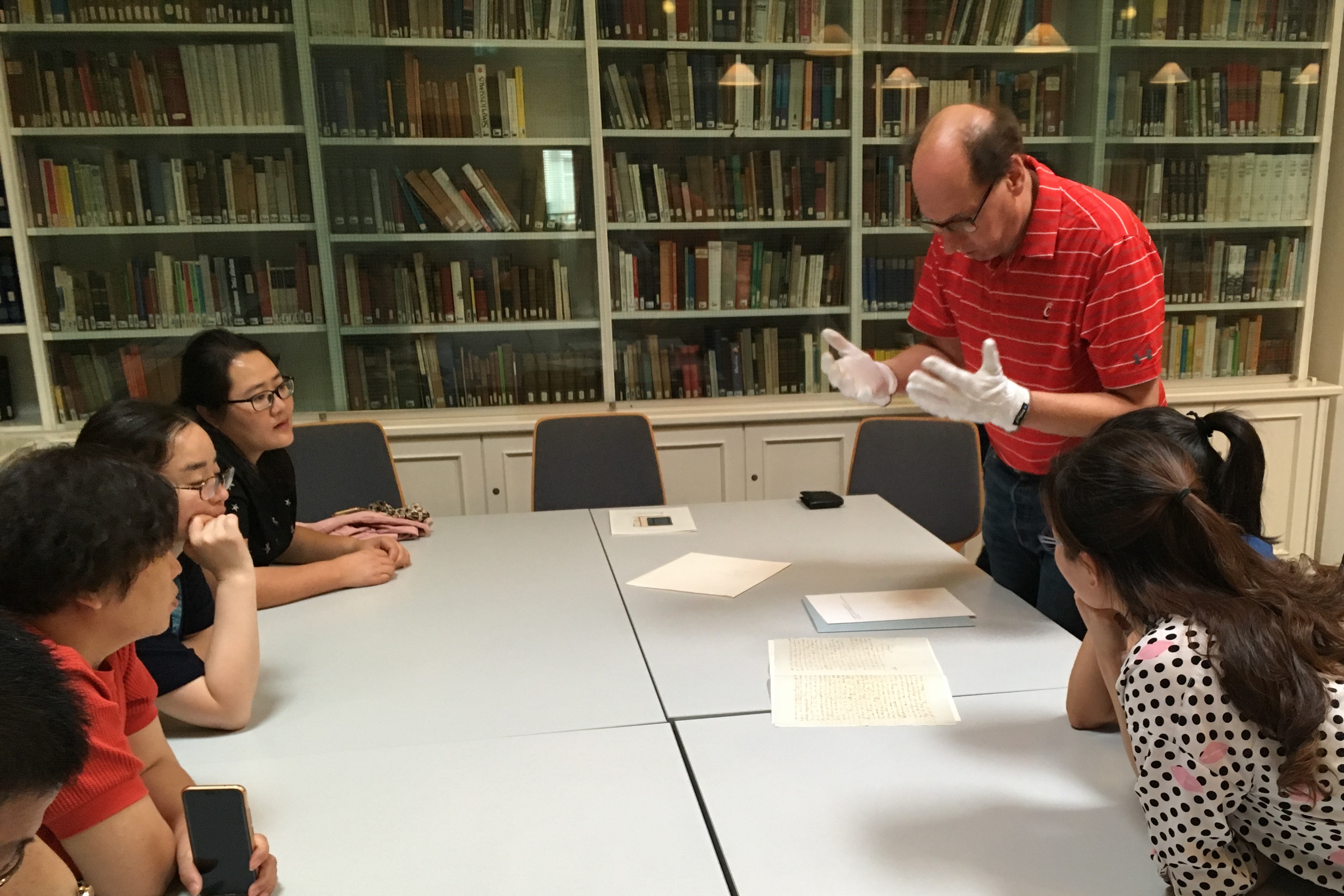Friedrich Engels and Technology
Dr. Eberhard ILLNER, Düsseldorf
In the theory of development of modern industrial capitalism of Karl Marx and Friedrich Engels, the "Industrial Revolution" and especially mechanization played a central role in both a capitalist and a future socialist society. High productivity dynamics and increased efficiency are necessary to mobilize natural resources for the nutrition and lifestyle of the people on the necessary scale. The negative side effects of machinization, however, are essential components of capitalist commodity production. Under communism these would cancel each other out, since people would no longer alienate themselves by their work.
The question of the effects of machine technology in the work process was controversially discussed at that time. A general concept for the " technology factor" in an economic and social reference system was missing. In the 19th century, there were a number of approaches to this, both in England and on the continent. What were the arguments Engels had used at the time?
Man and machine in Friedrich Engels' early writings
"The history of the working class in England begins in the last half of the last century, with the invention of the steam engine and the machines for processing cotton. As it is well known, these inventions gave the impetus for an industrial revolution, a revolution which at the same time transformed the whole of bourgeois society and whose significance in world history is only now beginning to be recognized.“ With this thesis, the 24-year-old german apprentice in trading initiated his first major book "The condition of the Working Class in England" in 1845. As a result of the use of steam engines and with the use of autonomously running spinning machines and weaving looms, "man, the worker, is seen only as a piece of capital, to which the factory owner reimburses interest under the name of wages for giving himself up for use. The proletariat had arisen and transformed the entire bourgeois society. The "working class" had created England's greatness and was now demanding its share. But the factory owners denied it this share.“ Engels built on French economists Sismondi, Fourier and Blanqui's criticism of the failure of the authors of classical national economic theory in England ( Adam Smith, David Ricardo ) to address the social question. The social question is no longer just a question of England, but a central problem of the entire "civilized world".
Adolph Blanqui had been the first to speak in his "cours d'économie industrielle" published in 1837 "Of the economic revolution brought about in England by the discoveries of Watt's and Arkwright's...": "Two future immortal machines, the steam engine and the spinning machine, overthrew the old trading system, and almost at the same time made material products and social questions appear which had been unknown to our fathers. The small workers now became tributary to the big capitalists; the spinning frame replaced the spinning wheel, and the steam cylinder took the place of the service of horses.“
In that period, the thesis of an economic revolution, sharpened to two inventions, seemed both plausible and spectacular. For Friedrich Engels there was no doubt about it, because as a textile entrepreneur he was closely familiar with the technology of the special machines used in spinning and weaving mills. The three levers of industry were the division of labor, the importance of water and steam power, and the "mechanism of machinery". Industrial work in factories required large capitals and a large number of workers familiar with machine operation. Engels was interested in the effects of expanded machine use on wage dumping and of improved technology on greater differentiation of labor demands. He identified a crowding out effect, especially among male adult workers, without an appropriate distribution of the increase in benefits caused by increased machine use. Engels' estimation: "In an orderly social state such improvements would only be gratifying; in the state of war of all against all, individuals seize the advantage and thus deprive most of the means of existence. He also dealt with the objection that the lower product prices would lead to increased demand and thus to the expansion of production with additional jobs, so that the workers would quickly be paid again. Engels countered that this was only true for products with low commodity prices and that the time lag of the demand effect was too great for workers to be able to bridge it. Wage labor in the factory cities had robbed them of their former agricultural bases. Now they were at the mercy of the volatile industrial economy.
Let us summarize Engels' findings, even if the result - as he later frankly admitted - was incomplete and partly incorrect due to the youthful furor: on the basis of a collection of empirical data that was unique until then, Engels developed first explanatory approach about the impact of technical innovations on a bourgeois society of competing private interests and increasing social inequality. It is not the technological change itself that necessarily leads to social upheaval. Technical progress is to be welcomed, even if it is followed by a fair distribution of the productivity advantage. A distribution of the added value to all those involved in production, however, was not intended in the prevailing state of "dissolution of humanity into monads" through " insensitive insulation of the individual to his private interests. Social war was prevailing in England. This also included systemic crises that ran in cycles of five to six years. The "surplus" population of England, according to Thomas Malthus, in a miserable existence was nothing others than a "reserve" of workers that was needed in times of economic boom. Three-quarters of the cycle, however, this reserve is without work and bread. The labor market reacted "just like any other article of commerce".
For Engels, technological progress in reality was always linked to concrete economic, political and social structures. But where exactly was the lever to be applied in order to break the vicious circle of increasing social stratification through the unjust distribution of the increase in productivity achieved by technological progress? Marx dealt with this question above all since the 1850s in London, and relatively independently of Engels, who had to earn money as an entrepreneur in Manchester from 1850 to 1869. There is much to be said about Marx's theory of machines, but that is another story.
Technology in Friedrich Engels later writings
Only when Engels was released from his professional duties in 1869 was he able to pursue his interest in scientific and technical questions. As a talented autodidact, he sought to make contact with the scientific discussions in physics, chemistry, electrical engineering, anthropology and other fields of the natural sciences. There are surviving excerpts and drafts in various stages of development as well as plans for a later publication, which he did not finished for being published during his lifetime. Whether these excerpts and drafts actually reflect the professional level of research of his time, as often claimed, is doubtful, at least in part. The physicist and Nobel price winner Albert Einstein has made critical comments on this. It was only fifty years later that a "work" was constructed from these writings under the title "Dialectics of Nature" (1873-1882) MEGA I/26.
With his anthropological considerations on the development of technology, Engels took up the discussion of that time about primeval relics ( for example of the Neanderthal man). Engels saw the manufacture of tools as the basis of his work. It was a reflexive process of specialization. "Thus the hand is not only the organ of the work, it is also its product. Only through work, by adapting the special training of muscles, ligaments, and in longer periods of time also of the bones, and by constantly renewing this inherited refinement to new, ever more complicated tasks, has the human hand received that high degree of perfection on which it could conjure up Raphael's paintings, Thorvaldsen's statues, Paganinian music. "Even the steam engine, until now his most powerful tool for the transformation of nature, is based on tools, in the last instance on the hand."
Engels noted an interrelation of brain and hand as a product of the experience of practical benefits over time. However, in this process there would also always be "unintended effects of uncontrolled forces", which " realizes the intended purpose only exceptionally, but far more often its opposite ".
What Charles Darwin had described as the "struggle for existence" in the animal kingdom, and what is to be found again in the currently prevailing free competition in the economy, could not be the final state. "Only a conscious organization of social production, in which production and distribution are carried out according to plan, can lift humans out of the rest of the animal world in a social relationship, just as production has done for humans in a specific relationship in the first place. In other words: As late as the 1870s, Engels saw the solution to this technologically induced dilemma solely in the reorganization of the economy, which means in a non-technological system of controlling economic variables and sociopolitical influences.
This aspect of the social consequences of technological innovations can also be found in his contributions to military theory, in which he explored the question of the influence of industrial innovations - such as the construction of armored turret ships or the development of precision rifles - and their effects on equipment, strategic and tactical command and control, and logistics.
His more profound explanations of the understanding of electrical engineering research in the 1880s prove his special interest in this field. Engels was deeply impressed by the rapid development of electrical engineering. There were intensive reports about it in the media and at large exhibitions. With it, the way suddenly seemed to be clear for him to enter the world of almost unlimited technical opportunities. Electrical energy became storable, transportable and seemingly clean, of boundless power and yet so finely dosed that every small household could benefit from it. However, this required complex distribution systems that could only be established when science, technology, industry, capital and politics worked together. The innovations in the field of low-voltage current technology with the Morse telegraph from 1835 onward had initially been quite modest in Germany and were limited to the military and railroad traffic. In contrast, the use of the low current for the transmission of news was of far greater importance for England and the USA. Cable and telegraph companies were booming there. Up to 25 % dividends were paid on capital employed.
The electrification with high-voltage current technology that began in the 1880s was a process accompanied by propaganda campaigns, because public opinion was instrumentalized in the competition between direct current and alternating current systems (DC / AC - Systems). After the discovery of the dynamo-electric system by Werner von Siemens in 1866, it became possible within a few years to build an industrially usable machine that continuously supplied DC - current. In 1882 Thomas Edison (1847 - 1931) built the first DC power station in Manhattan, the financial district of New York. After the French physicist Marcel Deprez (1848-1908) had successfully put into operation the first test track for the transmission of electricity between Munich and Miesbach by means of DC power at the International Electrotechnical Exhibition in Munich in 1882, Friedrich Engels, who took an active part in the experiments, commented on the effects:
"In fact, however, the matter is enormously revolutionary. The steam engine taught us to transform heat into mechanical motion, but in the exploitation of electricity we are given the means to transform all forms of energy: heat, mechanical motion, electricity, magnetism, light, one into the other and back again, and to exploit them industrially. The circle is closed. And Deprez's latest discovery, that electrical currents of very high voltage can be propagated with relatively little loss of power through a simple telegraph wire to previously undreamed-of distances and used at the end point - the thing is still in its infancy - definitely frees industry from almost all local barriers, makes the use of even the most remote water power possible, and although it will benefit the cities in the beginning, it must eventually become the most powerful lever to abolish the opposition between city and country. It is obvious, however, that this will also give the productive forces an expansion in which they will outgrow the leadership of the bourgeoisie at an increased speed...".
Engels was right with his prediction of the industrial use of the most distant water powers. However, the technically superior AC system by Nikola Tesla (1856 - 1943) became established in practice. Two decades later, the hydroelectric power plant at Niagara Falls in New York State was built. It supplied large amounts of energy over long distances for New York, Connecticut and Massachusetts, where industrial sites were successfully diversified.
Engels' prediction that if the important driving forces were available at any time and place, the productive forces would also "slip away from the leadership of the bourgeoisie" seems cautious. In 1848, Engels said, the development potential of capitalist production had been underestimated. In the meantime, the "big industry... had only really become naturalized, but had virtually made Germany a first-rate industrial country," Engels wrote in 1895. New inventions have always triggered technological upheavals, similar to the steam engine a hundred years earlier. Engels hinted that in a developed overall technological system, innovations could well lead to the fact that those harsh social antagonisms that were characteristic of the first phase of the Industrial Revolution could be defused and embedded in a "parliamentary" manner, even without a radical political revolution. Advanced technology, which by no means always leads to the destruction of jobs, as Marx postulated, could establish new pattern of industrial production. In other words: that dilemma of unintended negative consequences of intrinsically positive technological developments has been softened by Engels. He saw possibilities for a transformation of industrial production that was not yet exactly foreseeable. An end to capitalism as a technological consequence seemed increasingly implausible to Engels in the last years of his life.







